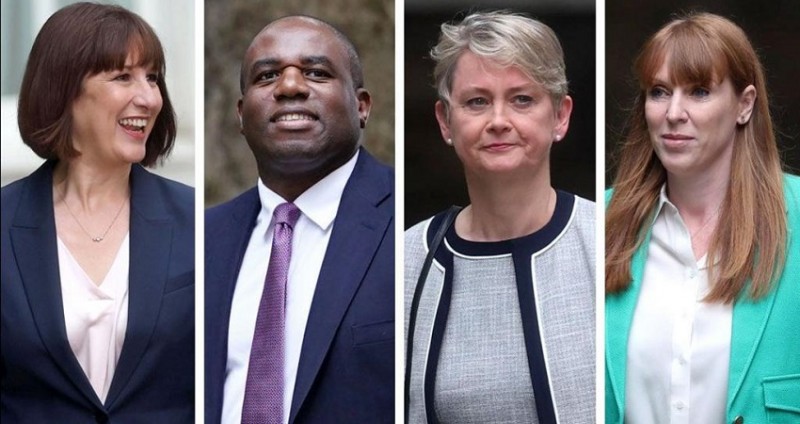
Sir Keir Starmer's newly appointed cabinet convened for the first time on Saturday, marking Labour's inaugural full day in power following a decisive election victory. Among the notable appointments, Rachel Reeves assumes the role of the UK's first female chancellor, while Deputy Prime Minister Angela Rayner joins a historic lineup of 11 women in the 25-member team.
Starmer, announcing his cabinet, emphasized immediate action towards transformative change in his inaugural address as prime minister from Downing Street. He pledged a government dedicated to restoring public trust and serving the nation diligently. He appointed Rachel Reeves as the UK's first female chancellor. Angela Rayner assumes the role of deputy prime minister, Yvette Cooper becomes home secretary, and David Lammy takes on the position of foreign secretary.
Key priorities for the initial cabinet meeting include ensuring economic stability, reducing NHS waiting lists, and addressing issues related to illegal immigration, as outlined by Labour's early agenda.
David Lammy has been appointed as the new foreign secretary, and Yvette Cooper takes on the responsibilities of home secretary. Reflecting on his appointment outside No. 10 Downing Street, Sir Keir assured the public of his commitment to rebuilding Britain swiftly.
Labour secured a commanding 412 seats in the House of Commons, granting the party a substantial majority of 174 seats. In contrast, the Conservative Party suffered a significant setback, dwindling to a historic low of 121 MPs, marking a net decline of 251 seats.
Following the election, other parties also saw varied results: the Liberal Democrats gained 63 seats, reaching a total of 71, while the SNP faced a substantial loss, retaining only nine seats with one constituency yet to declare. Reform UK claimed five seats, including leader Nigel Farage's victory in Clacton, and the Greens increased their parliamentary representation from one to four seats. Plaid Cymru also doubled its MP count from two to four.
Sir Keir wasted no time in appointing additional ministerial roles shortly after assuming office, underscoring his swift governance approach. Angela Rayner, in addition to her deputy prime ministerial role, will oversee the Department for Levelling Up, Housing, and Communities.
A significant majority of the cabinet members have a state education background, with only three having attended private schools. Notable figures from the previous Labour government returning to key roles include Ed Miliband as Energy Security and Net Zero Secretary, and Hilary Benn as Northern Ireland Secretary. Pat McFadden takes charge of the Cabinet Office, while John Healey serves as Defence Secretary.
All cabinet members supported the Remain campaign during the 2016 EU referendum. Ahead of the recent election, Sir Keir affirmed his stance against the UK rejoining the EU single market during his tenure.
Sir Keir's initial hours as prime minister were marked by congratulatory calls from world leaders, underscoring the global attention on Labour's resounding electoral success.
Read More:
PM Modi and UK PM Keir Starmer Push for Early India-UK FTR
What is Significant About UK’s Most Diverse Parliament Yet?
Keir Starmer Takes Office as New U.K. Prime Minister, Forms Government